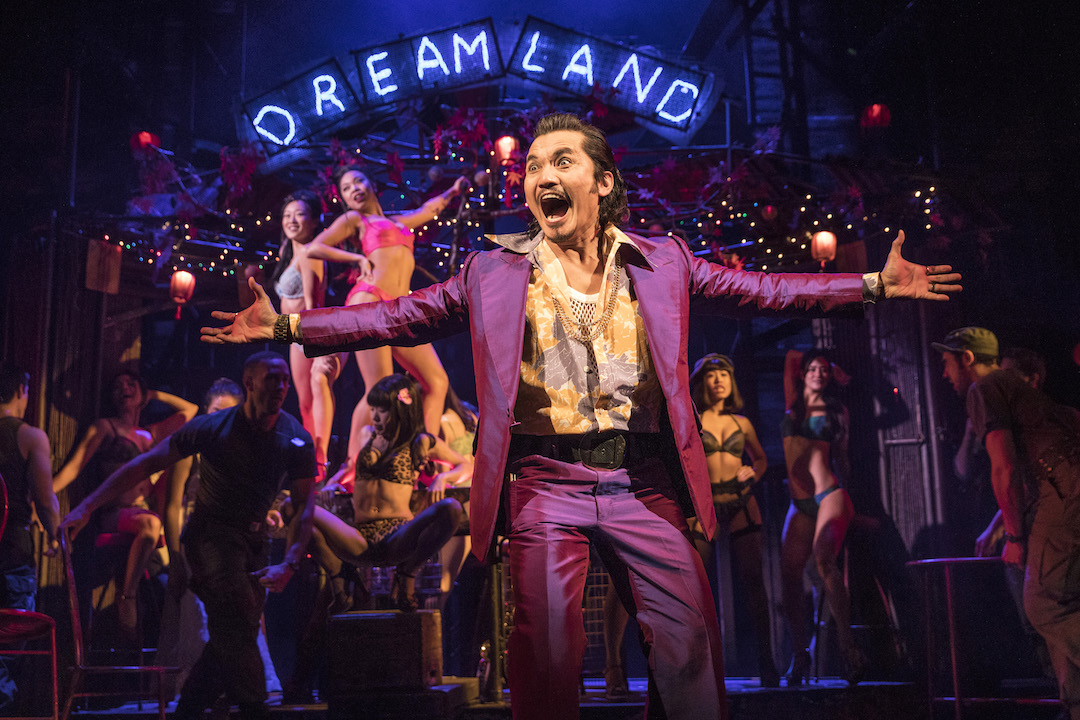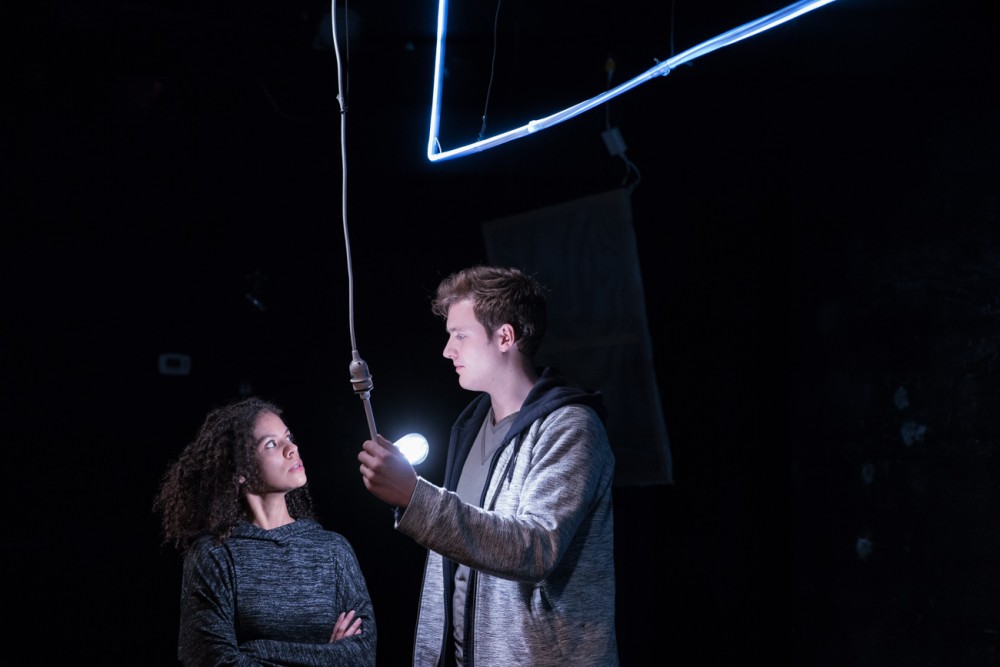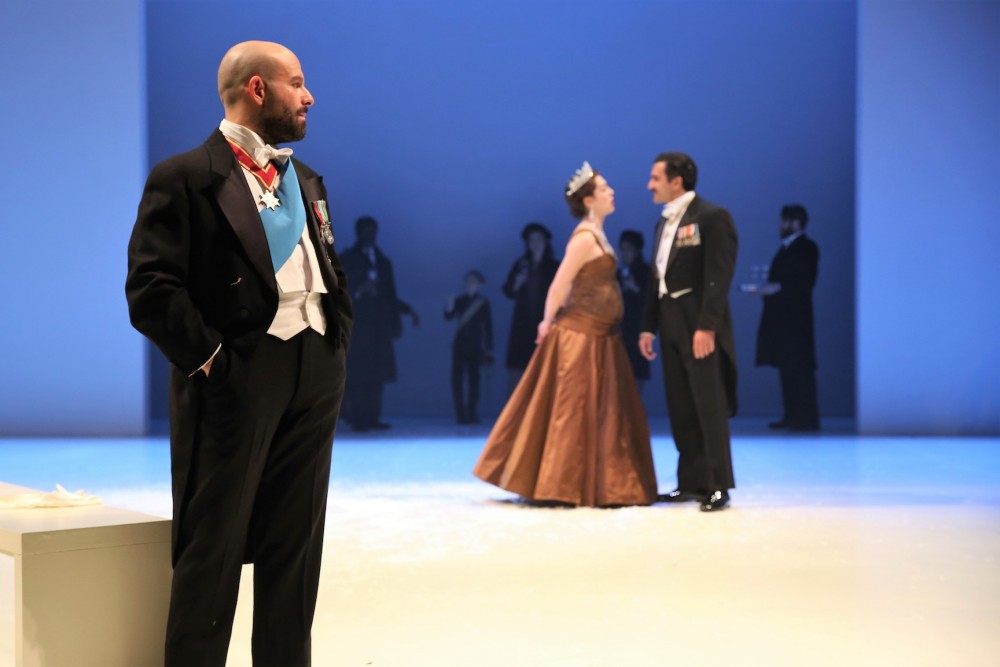New York Theater Review by JK Clarke
The musical Cabaret has the rare quality of changing with the era without really losing its meaning. Like many a Shakespearean drama, the story’s emphasis molds to the times, and yet continues to carry enormous weight and meaning. When it debuted on Broadway in 1966, the character of the Emcee was something of a ringmaster, presenting a panoply of freaks and deviants to a voyeuristic audience. The eventual downfall of the Kit Kat Klub could be said to have had moral overtones. But the Tony winning 1998 production, directed by Sam Mendes and starring a young Alan Cumming, placed the emphasis on queer sexuality and hedonism. The Klub was a place of homosexual and bisexual liberation, just as American society was beginning to view various types of sexuality as normal, rather than the aberrant, imbalanced behavior it was in the 1960s. In an April 28, 2014 interview with Terry Gross on the NPR program, Fresh Air, Alan Cumming suggested that “the sex element of the [1998] show . . . was so shocking and took up so much of people’s perception of the show.” The depiction of bisexuality and gay sex took over the production, Cumming felt, though not necessarily in a negative way. And, in a way, that was perfectly suited to the period.


Despite the multiple romantic subplots, Cabaret is essentially about one thing: the destruction of socially and politically liberal Weimar Germany and the rise of fascist Nazi Germany. Mainly based on the Christopher Isherwood novella, Goodbye to Berlin, set in 1931, there are also echoes, deliberate or not, of Thomas Wolfe’s missive, “I Have a Thing to Tell You,” which was published in The New Republic in 1937 and included in Wolfe’s noteworthy tome, You Can’t Go Home Again. In it, Wolfe describes the vast socio-political changes—clearly depicted in Cabaret—in 1930s Berlin: “Then something happened. It didn’t happen suddenly. It just happened as a cloud gathers, as fog settles, as rain begins to fall.”


Fortunately, two seasoned Broadway actors, Linda Edmond (as boarding house landlady Fraulein Schneider) and Danny Burstein (as grocery store owner Herr Schultz), play their supporting roles with gusto (and for which they both deservedly received Tony nominations this year). Theirs is also a love story, but one that is the linchpin that is yanked from the whimsical milieu. Herr Schultz is a Jew and when Ludwig (a Nazi, it turns out) sternly warns Fraulein Schneider that their romance would prove detrimental to her well-being, suddenly the “anything goes” spirit evaporates forever.
Cabaret is a musical that practically drives itself. Not just because of John Kander’s catchy music and Fred Ebb’s meaningful and unforgettable lyrics (the show’s theme song, “Willkommen,” is reprised in some form so many times that if it’s not thrumming mellifluously through your head by show’s end, then you either weren’t listening or you need your hearing checked), but also because Joe Maseroff’s book is so expertly directed (Sam Mendes and Rob Marshall (co-director), who also choreographed). They conspire to use Cumming—who has such mastery of the play by now—as an all-seeing, all-knowing Chorus, who glides effortlessly around the stage, often appearing where we least expect him. The Klub is his home, his domain and his world: he’s been there forever and knows everything about it. And that’s exactly why we feel so welcome when he beckons us in. The role feels like it was written for Cumming, and despite Joel Grey being the first to perform it, it is his now. What’s exciting to consider is what the role will be like if he reprises it another ten years hence.
But for now, oh how times have changed. And how lucky we are—from a purely entertainment perspective—that Cabaret has changed along with them. “Life is a cabaret, old chum . . .” Or maybe it isn’t. But, come see Cabaret.
Cabaret. Through January 4, 2015 at The Kit Kat Klub at Studio 54 (254 West 54th Street, between 7th and 8th Avenues). 212-719-1300, roundabouttheatre.org. Running time: 2 hours 30 minutes
*Photos: Joan Marcus
























